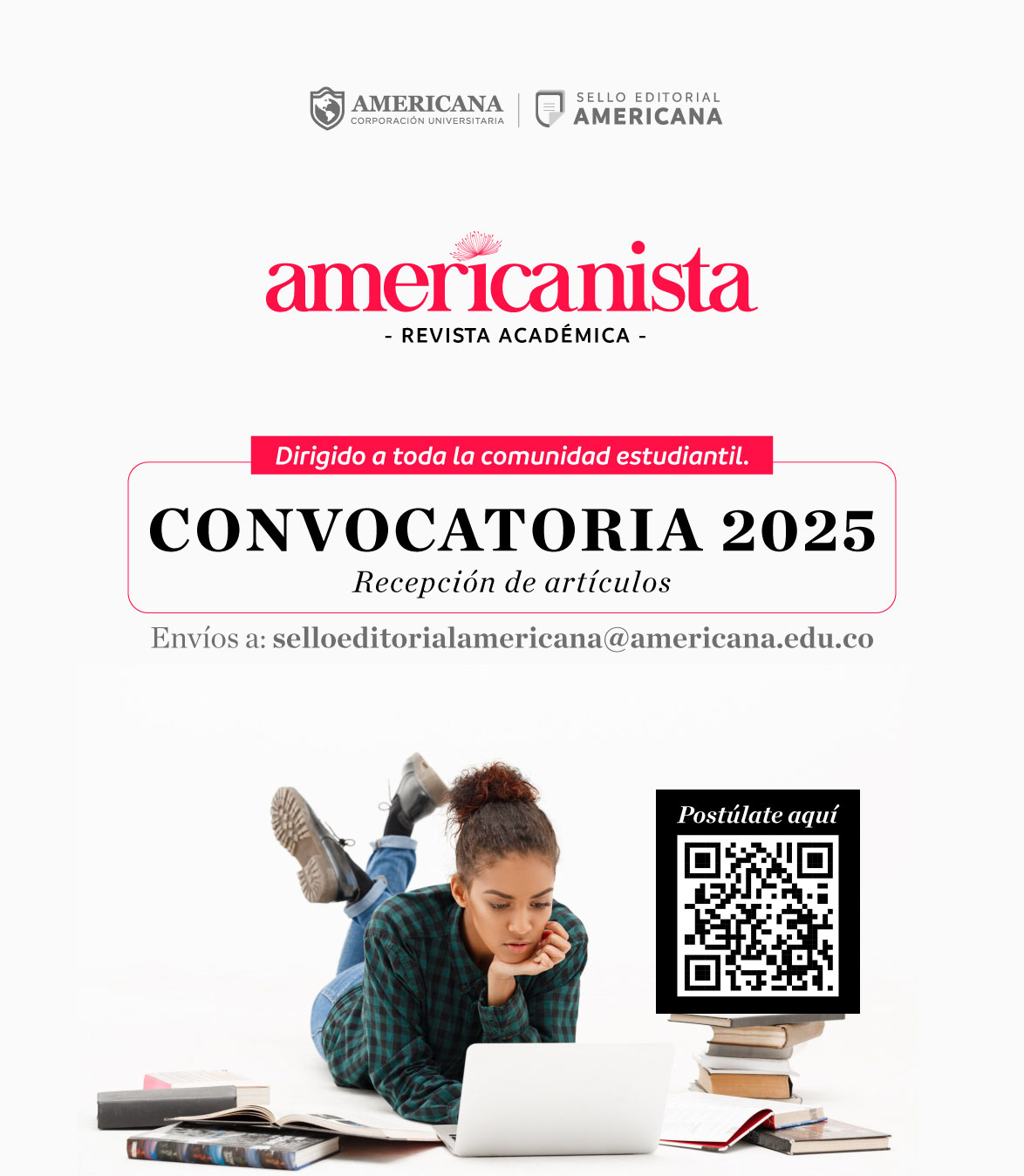Strengthening reading and writing in the spanish mother tongue through playful strategies to achieve meaningful textual productions in third grade children of the Santa Ana de Baranoa, Atlántico school.
Keywords:
Spanish literacy, Spanish mother tongue, meaningful learning, playful strategiesAbstract
This academic article is based on the strengthening of the literacy of the Spanish mother tongue through playful strategies to achieve significant textual productions in the third-year children of the Santa Ana de Baranoa normal school, Atlántico, because most of the students They presented shortcomings in the spelling, reading, such as legibility, clarity, and coherence. For the reason, it became necessary to create a playful-pedagogical intervention proposal, to strengthen said writing processes using play as a mediating and motivating strategy, so that students improve and show interest in writing through, of various activities that involve play, creativity, and innovation. It is essential to carry out our article based on this research, since writing constitutes an important and transcendental aspect in the life of every human being, since it is seen as an interdisciplinary process that must be worked on and stimulated throughout life., and in this way it should be noted that the teacher and parents play an essential role in the company and the development of these writing processes in children.
References
Anijovich, R., y Mora, S. (2009). Estrategias de enseñanza: otra mirada al quehacer en el aula. Aique Grupo Editor.
Arboleda Mazo, W. H., & Anaya Hernández R. (2018). Un Acercamiento a datos abiertos en salud y su estado actual en Colombia. Pensamiento Americano, 11(21). https://doi.org/10.21803/pensam.v11i21.155
Blaxter, M. (1979). Symposium on the handling of qualitative data. Introduction. Sociological Review, 27 (4), 649-650.
Becker, H. & Geer, B. (1970). Participant observation and interviewing: A comparison. In W.J. Filstead (Ed.) Qualitative Methodology (pp. 133-142). Markham
Cassany, D. (1993). La cocina de la escritura. Anagrama.
Esquivel Marín C. G. (2018). Las prácticas restaurativas en la creación de espacios de paz dentro de la escuela. Pensamiento Americano, 11(20). https://doi.org/10.21803/pensam.v11i20.25
Ferreiro, E., y Teberosky, A. (1991). Los sistemas de escritura en el desarrollo del niño. Siglo Veintiuno.
Ferreiro, E. (2005). Proceso de aprendizaje de la lectura y la escritura. Universidad Santo Tomas. https://soda.ustadistancia.edu.co/enlinea/mariachalelaDesarrollo%20de%20la%20lectura%20y%20escrit_mariachalela-1/proceso_de_aprendizaje_de_la_lectura_y_la_escritura.html
Jiménez Vélez, C.A., Dinello, R., y Alvarado, L.A. (2000). Recreación, lúdica y juego. Magisterio. https://bibliotecadigital.magisterio.co/libro/recreaci-n-l-dica-y-juego
Ministerio de Educación (MEN). (2007). ¿Qué significa escribir? https://www.mineducacion.gov.co/1621/article-122242.html
Miles, M. B., y Huberman, M. (1994). Métodos para el manejo y análisis de datos. En N., Denzin & Y.,Lincoln (eds.), Handbook of Qualitative Research, Sage publications. http://metodo3.sociales.uba.ar/wp-content/uploads/sites/169/2015/03/DC_1_Hamilton_1994.pdf
Santamaria R, M. J., Antequera A, R. R., Hinojoza – Montañez, S. D., & Leguizamo P, V. (2022). TRANSFORMACION EN MODELOS DE GESTION DEL TALENTO HUMANO CONCEPTOS, DEFINICIONES Y APORTES. Revista Tajamar, 1(1), 78-90. Recuperado a partir de http://publicaciones.litoral.edu.co/index.php?journal=Revista_tajamar&page=article&op=view&path[]=13
Motta, C. (2004). Fundamentos de la educación. Cerlibre.
Muñetón, M.A. (2000). Efectos de la instrucción asistida a través del ordenador en las habilidades ortográficas de niños con DA.
Patton, M.Q. (1980) Qualitative evaluation methods. Sage Publications, Beverly Hills.
Peinado C, Y.(2022).La Innovación y Gestión del Conocimiento como elementos de transformación en las Organizaciones. Revista
tajamar,1(2).p.53-62
Robledo Fernandez, J. C., & Robledo Rodriguez, A. (2023). LOS DESAFÍOS DEL CAPITAL HUMANO: UNA APROXIMACIÓN DESDE LA FORMACIÓN TÉCNICA PROFESIONAL . Revista Tajamar, 1(1), 5-28. Recuperado a partir de http://publicaciones.litoral.edu.co/index.php?journal=Revista_tajamar&page=article&op=view&path[]=2
Rodríguez, R. ., Landazury Villalba, L. F., Lugo Arias, E. R. ., Sandoval Reyes, R. ., & Jiménez Celín, Y. P. . (2020). Descripción de la situación actual del sistema logístico en la región caribe colombiana. Ad-Gnosis, 9(9), 83–95. https://doi.org/10.21803/adgnosis.9.9.439
Shanahan, T. (2004). Superar el dominio de la comunicación: Escribir para pensar y aprender. En: T.L, Jetton y J.A., Dole (Eds.), Investigación y práctica de la alfabetización de adolescentes. Guilford Press.
Solé, I. (2011). Competencia lectora y aprendizaje. Editorial de la Universidad de Barcelona.
Tierney, R. J., & Shanahan, T. (1996). Investigación sobre la relación lectura-escritura: interacciones, transacciones y resultados. En: R. Barr, ML Kamil, P. Mosenthal y P.D. Pearson (Eds.), Manual de investigación en lectura. Erlbaum.
Downloads
Published
Issue
Section
License
Copyright (c) 2023 Ariannys Sierra, Laura Mendoza, Laurens Escobar Morales, Estefany Judith Marin Merlano, Homer Del Cristo Bustamante Videz, Ladis Milagro Ojeda Beleño, Valentina Vizcaino Colpas

This work is licensed under a Creative Commons Attribution-NonCommercial-ShareAlike 4.0 International License.




